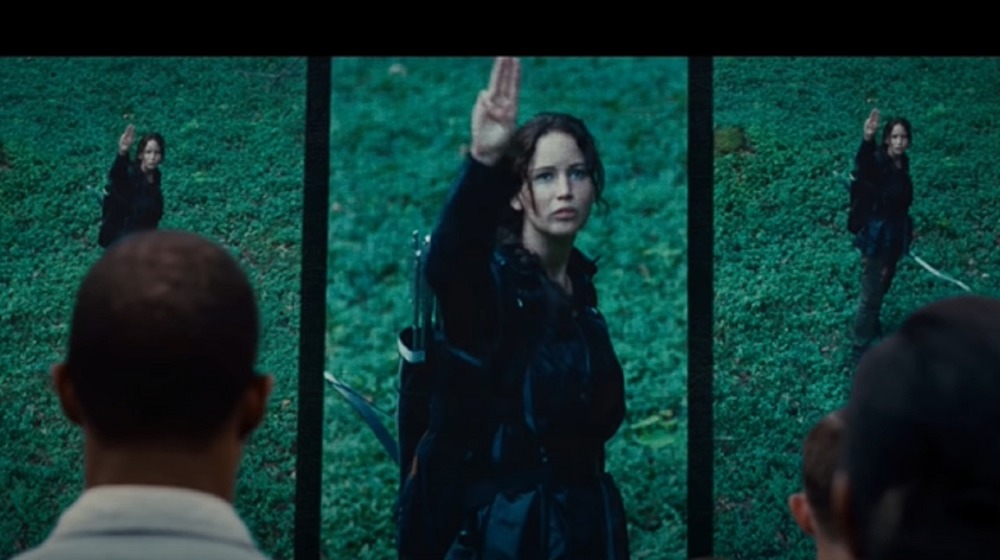The Secret Meaning Behind Katniss Everdeen's Name In The Hunger Games
For many authors, choosing a central character's name is a very vital step in the creative process. A meaningful moniker can inform and enrich so much of the story being told, particularly when it comes to a book's protagonist. Suzanne Collins certainly put a lot of thought into what she would call each and every person in her The Hunger Games books, from some zany names that reflect her tributes' districts of origin to little sobriquets that quietly honor certain characters' choices to titles that draw from other pieces of literature and history.
The series' lead Katniss Everdeen (portrayed in the film adaptations by Jennifer Lawrence) is not only given a name that is completely unique to this gripping tale about the dystopian society of Panem, but it is also layered with metaphors and other homages. Here's a look at the secret meaning of Katniss Everdeen's name in The Hunger Games.
Katniss has an earthy connection
In the first The Hunger Games book, Collins spells out one of the major reasons Katniss' parents might have chosen this name to put on her birth certificate. Her father, a poor miner from the Seam who taught her to become an outdoors enthusiast like himself, would have likely known how to scavenge food in dark days, and Katniss' name could be a reflection of that.
Early on in the story, as Katniss runs across some pond plants bearing her name, she remembers him teaching her that their roots can be quite nourishing when cooked. "As long as you can find yourself, you'll never starve," her father once told her before his untimely death in a coal mine explosion. This advice comes in quite handy when she, her sister, and her grieving mother become desperate for food.
In addition to saving her family from starvation, the plants are also quite reflective of Katniss' personality. As Katniss describes them, they are "tall with leaves like arrowheads," which is a very organic reference to Katniss' skills with a bow and arrow. The scientific name of the plant is also Sagittaria Sagittifolia, which is owed to Sagittarius, the astrological sign with the zodiac symbol of an archer.
Everdeen comes from another book heroine
Katniss' family name, Everdeen, also boasts a much deeper meaning. Collins revealed in a 2010 interview with Entertainment Weekly that Everdeen is a wink to another book character's surname, explaining, "Katniss Everdeen owes her last name to Bathsheba Everdene, the lead character in Far From the Madding Crowd. The two are very different, but both struggle with knowing their hearts."
Indeed, just as Bathsheba struggles to decide between multiple potential suitors with differing personalities and economic statuses, Katniss must also determine whether her heart belongs to her fellow tribute, the bakery owner's son Peeta Mellark, or her longtime friend, the impoverished hunter Gale Hawthorne. A similar comparison can also be drawn between Bathsheba Everdene and Katniss' mother who, despite growing up in the merchant class and being courted by Peeta's father, fell in love with Katniss' much poorer dad.
The name Everdeen also sounds much like evergreen, the name of a plant which manages to stay green throughout the seasons. That could be a nod to the fact that Katniss spends most of her downtime roaming through the forest surrounding District 12, and it could also point to her ability to make it through even the harshest winters at home by hunting game and, eventually, by surviving both the 74th and 75th Hunger Games.


